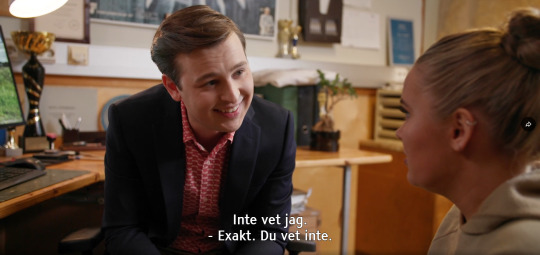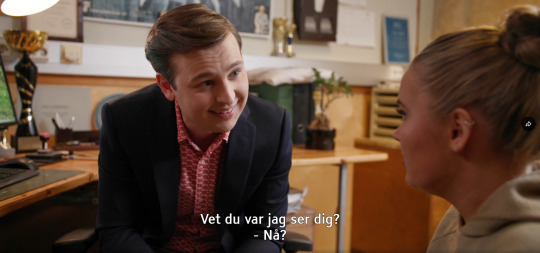#authorship question
Explore tagged Tumblr posts
Text
the marlowe conspiracy pages are WILD

#christopher marlowe#shakespeare#shakespeare authorship question#authorship question#marlowe#kit marlowe#funny#memes#lit#english literature#literature
6 notes
·
View notes
Text
.
#interested in the mental gymnastics folks have done to justify still enjoying good omens these days#look man. you can like the book. just don't put money in gaiman's pocket#i'm interested in the 'pratchett wrote 70% of the book' statistic but that's bc i had a years long question#of why i liked good omens but never particularly liked gaiman's solo work#like it's always been a pratchett book to me? but that doesn't mean we should do gymnastics to put pratchett on gaiman's vacant pedestal#i feel gouche trotting out the 'not really loving gaiman' bit bc i know people keep doing that as a reaction#but i mean i have found years-old tweets i made where i was disappointed i disliked American Gods#i'd wanted to sell off my copy for years to make room but i felt too sentimental to do that#i like adaptations i guess. that counts as co-authorship#anyway we don't have to do the 'good omens was written by terry and no one else/hatsune miku' bit. bad people can make good art#sit with it and consider supporting an assault-survivor charity if you can.#i found out about the situation last year but read the bighuge article now to see the women's perspective. sickening. good journalism though
2 notes
·
View notes
Text
@intimate-mirror
a lot of the scholarship, like a lot of english department scholarship in general, is really bad and makes stupid assumptions @tanadrin some things I've seen are 1. criterion of embarrassment used effectively in a negative way where all claims that are not embarrassing are labeled as probably false 2. "these are written in different styles, so they have to have different authors" I'm exaggerating a bit, but only a bit.
point 2 here is a drastic oversimplification of the documentary hypothesis. it's not just that the different sources use different words for god (although that on its own is interesting), it's that you can separate these sources, and get distinct stories with their own beginnings, middles, and ends that don't have the problems of the original texts (confused details, repeated episodes, out-of-context scenes), and their own governing thematic concerns. moreover, there are pretty specific hypotheses for why the sources would have been combined in the way they are, based on the material constraints on the production of ancient scrolls.
liane feldman, for instance, has a complete translation of P ("The Consuming Fire: The Complete Priestly Source from Creation to the Promised Land") and in her interview with dan mcclellan on his podcast she talks about how it is effectively a complete text. now, obviously, there are details of the documentary hypothesis that are debated--i think the traditional four-source version is considered out of date by some scholars, who instead argue for two or three sources onto which other elements gradually accreted that were never a standalone text themselves--but the scholarship is way more sophisticated than "these passages are in a slightly different style, and therefore they must have different authors." these are theories that produce pretty specific and coherent claims, and even if they're by and large not testable in the sense we have very ancient sources we can consult directly (outside of the occasional find like the Dead Sea Scrolls), they're testable in the sense that you can marshal specific points of evidence for and against them and make reasonable judgements based on the balance of probability.
a lot of points of textual criticism do dovetail with other disciplines like archeology, comparative mythology, historical linguistics, etc. so i think it's either disingenuous or ignorant to paint textual criticism as operating in a kind of methodological vacuum and proceeding entirely on nebulous suppositions.
#then again i guess if you're a 'the curtains are blue' type#any systematic investigation of a textual artifact must seem like a strange endeavor to you#because the process of authorship is fundamentally a black box#where outputs have no reason to correlate to any particular input#but i think we can stretch our capacity for reason a *little* beyond that point#even if we cannot always arrive at uncontroversial answers for every question we pose
20 notes
·
View notes
Text
I think I am mostly relieved but a tiny bit disappointed that Somerton has not, as far as I saw, ever done a video on something Shakespeare-related. Relieved bc I truly don’t have the time or energy to be as angry as it would inevitably make me but a little disappointed just bc I wanted a chance to play spot the plagiarism with a topic where there’s an extremely nonzero chance I would’ve actually read the sources he would be cribbing from
#shakespeare#willing to put money on somerton having some WEIRD things to say about the authorship question#‘’’’question’’’’’
16 notes
·
View notes
Text
One could always become a Beatles truther who insists the lads didn't write any of their own lyrics and that said lyrics were actually written by William Shakespeare, who wrote them down and hid them somewhere in Stratford-upon-Avon, where they were discovered by Ringo as a child while on a family holiday.
the beatles are an infuriating band to me as a relentless contrarian. liking them is cliche, hating them is cliche, being indifferent towards them is cliche. it's impossible to have an novel or interesting take on the beatles in current year. like how am i supposed to win here?
#the beatles#reverse shakespeare authorship question! he wrote more things than previously credited for!
28K notes
·
View notes
Text
THREE TIMES A STORY
In 1550a boy wonder is born in the English countrysideof Hedingham in Essex who changed the worldbut lost his soul. In 1928after a great war in the Shadowlands, a manliving in the Ashdown Forest of East Sussex, England, created the Hundred-acre Wood. In 1963 twin girls are born across the Atlantic.One of them was born to rule an enchanted forest.The other was born to stop her.

View On WordPress
#Edward de Vere - the 17th Earl of Oxford#Eeyore the donkey#historical fantasy#reincarnation#the Shakespeare authorship question#V. Knox author
0 notes
Text
However, the public is [where books are concerned] very much more interested in matter than in form, and it is for this very reason that it is behindhand in any high degree of culture. It is most laughable the way the public reveals its liking for matter in poetic works; it carefully investigates the real events or personal circumstances of the poet's life which served to give the motif of his works; nay, finally, it finds these more interesting than the works themselves; it reads more about Goethe than what has been written by Goethe, and industriously studies the legend of Faust in preference to Goethe's Faust itself. And when Bürger said that "people would make learned expositions as to who Leonora really was," we see this literally fulfilled in Goethe's case, for we now have many learned expositions on Faust and the Faust legend. They are and will remain of a purely material character. This preference for matter to form is the same as a man ignoring the shape and painting of a fine Etruscan vase in order to make a chemical examination of the clay and colours of which it is made.
Schopenhauer - On Authorship and Style (Parerga)
0 notes
Text
Do you like an ugly angel or a beautiful demon?
#my phrase#phrases#like#preference#duality#angel#demon#questions#choices#doubt#my authorship#thoughts
1 note
·
View note
Text
mr shelgunov you cannot just mention that chernyshevsky wrote the proclamation to barsky peasants in your memoirs like it's nothing... hello...
#chernyshevsky posting#now remind me why is authorship of the proclamation a controversial question...#like yeah kostomarov was a lying piece of shit but why don't we trust other people on that?
0 notes
Text
When did it become impossible for people to scroll down a page to find the hyperlinks they need.
#Oh I need context for Homer's life and the authorship question. Clicks on a link for his birthplace.#They can't look up a classics professor either.
1 note
·
View note
Text
Pre transmigration cumplane where:
Shen Yuan is an avid cosplayer because hell, he's got money and time to burn and he's got a hyperfixation, abeit a bit questionable.
Airplane who sometimes goes to fan events and cons undercover to spy on what fans are saying and brainstorm ideas for new chapters, and since no one knows what he looks like he can get away with it. (He based LBH off himself so.. revealing that would be embarassing)
Now imagine, SY knows he can pull off Shen Qingqiu best because he looks a bit like him and screw him, he likes the scholarly look, it looks good on his slight frame. Airplane on the other hand, is built like LBH, dorito waist and all, curly hair that goes past his shoulder and the prettiest (pathetic crybaby) brown eyes to ever brown eye.
Airplane is listening into a heated group discussion when the speaker turns around and bumps into him. "You're hot." Airplane says panicking because holy fuck. Shen Yuan looks exactly how airplane envisioned SQQ, there's even a mean glint to his eyes, the posture is ridiculously perfect. Mean scholarly teachers is ver much his type. Besides mobie jun.
"I like your take on Binghe-" Shen Yuan responds because goddamn, that's clearly a Luo Binghe cosplayer and in modern clothes too??????? Clothes that cling to his figure? Good shit.
Cut to them fucking nasty style before exchanging socials. Real ones and not the accounts they use for PIDW stuff. Nope. Not doing that because they both got embarrassing fandom/authorship secrets to keep.
#instant chaos when they find out about each other tho#wanna bet it takes months?#airplane cant let that be a face (whole body?) reveal#shen yuan doesnt wanna scare off this beautiful man#cumplane#shen yuan#shang qinghua#airplane shooting towards the sky#svsss#pre transmigration
1K notes
·
View notes
Note
TLDR: Only someone who had an education could have produced such literary genius, and we don’t have any proof that Shakespeare went to school. So clearly William Shakespeare wasn’t the true author.
Thing is, we also don’t have any proof that he *didn’t* go to school because the kind of school he would have attended as a child did not keep any records about its students. Including who they were.
Personally I find it suspicious that no one gave a twit about Shakespeare’s background until he was named the greatest writer of all time. Then suddenly it was an issue. Almost like those in power didn’t want the severely suppressed working class to realize that lineage doesn’t decide a person’s future.
Hello. What are your thoughts on the Shakespeare authorship controversy? You seem like a Stratfordian (or maybe that's wishful thinking)
I think that extraordinary claims need extraordinary proof, and that the idea that Shakespeare had to be an aristocrat rather than a working playwright is founded in snobbery rather than in any kind of realistic estimate of the writing skills of the British artistocracy.
6K notes
·
View notes
Note
Don’t know if you’ve already answered a question like this, but what is your opinion on the rise of meta stories in the general media space? Stories that tackle the nature of the story they’re telling or do/don’t do a trope while aknowledging that it sure is a trope that is used in stories.
In the year 1615, Spanish author Miguel de Cervantes published the second part of what had become his most well known work, the novel Don Quixote. Though its plot ranges widely, the premise of this second volume involves, in part, the tale of the protagonist's earlier adventures having been published in book form (possibly by a wizard), resulting in several encounters in part two with characters who've read part one – in effect, the novel Don Quixote exists within its own text.
At one point, the titular Quixote meets a man named Don Alvaro Tarfe, a character from an unauthorised Don Quixote sequel published by a rival author; though Tarfe claims with seeming sincerity to be a great friend of Quixote, he does not recognise the man standing before him now, apparently having befriended a different version of Quixote in his earlier travels. This episode frames a metafictional commentary on the idea of literary canon and the notion of "authenticity" in authorship.
2K notes
·
View notes
Text
as with any other kind of artist, each gif maker has a style and signature that is unique to them. trust me when i say we can spot our own--and each other's!--work from a mile away. i'm sure this is something writers and artists who create through other media can relate to as well.
just because you don't necessarily 'see' the work that goes into it doesn't mean it's not there or that there isn't a person behind that work with feelings who notices when their work is being appropriated by someone else. it shouldn't even be a question of the measure of the work itself; we don't arbitrate the sharing of a fic or painting or fan vid without authorship based on how much or how little time and effort we think that person put into it. it was made by someone, plain and simple. it is not up to anyone else to dissolve that person of their efforts, their work.
i can't speak for all gif makers. but for me, it never feels good to see my work get used or reposted without credit or permission. please just ask!
tl;dr if you save gifs, know whose work you're saving. if you want to use them in any space beyond the privacy of your own eyes, ask first.
#iuserzoe#chrissiewatts#userveronika#userbells#usermaddy#firstprinced#darlingshane#usersteen#tusermira#userlang#usermegsb#userrlaura#lookstevie#sheisraging#tusertha#usertj#swearphil#usermbg#tagging fellow gif makers curious to hear your thoughts on this#no pressure to engage tho ofc!#p
396 notes
·
View notes
Text
"I think we who 'fit the norms' have a responsibility to understand those who live their lives differently. We need to know how to listen." Axel Åhman, Efter nio, 2020



One of the great things about discovering KAJ is that I have also fallen a tiny bit in love with Axel Åhman outside of the group. I mean, I haven't even had the chance to read his books yet, but the kinds of things I've seen him discuss in his writer and journalist role have already really endeared him to me.
It started with his documentary show Utanför boxen. Most specifically, episode 4, in which Axel talked to a nonbinary ace person, a sexologist, and two poly people (one of whom may have also been bi) about allonormativity, amatonormativity, and gender normativity. Even if those terms weren't used in the episode itself.
It's hard to even explain how happy it made me to see asexuality discussed in such an affirmative way on Finnish TV. Axel had even deduced on his own that the estimate of 1% of the world's population being ace was probably an understatement, which the sexologist and ace person confirmed for him. As someone who only discovered my aceness in my thirties, I really appreciated that being covered.
But perhaps even more than the ace side of things, I loved how Axel genuinely seemed to listen to his guests and wanted to learn from them.





"I'm starting to see how privileged I actually am as a straight man. Nobody questions me. Life is an open motorway before me. All I need to do is drive on; I won't be stopped at any red lights. Eri for example has to explain themself in several respects, basically every day. It's strong [of them] to be up to having that discussion every time."
This lesson on privilege clearly wasn't one Axel just learned for the show and forgot. He also repeated it in interviews conducted after his first book came out, such as the Efter nio clip linked at the top of this post and an interview with his alma mater's student paper.
Speaking of his first book, it's a short story collection with masculinity as the overarching theme. It's titled Klein; a dialectal variant of the word klen (meaning frail, weak, feeble or delicate), used to disparage men who don't conform to normative masculinity.
The interview in the student paper is by far not the only one where Axel has talked about how strict social norms weigh people down and how it should be okay for a man to be kle(i)n, but these snippets from said interview are still pretty illustrative.

In his stories, he examines behaviours connected to masculinity. Competition, rivalry and lifting oneself up by putting others down are some of the things Åhman highlights as problematic. [--] Åhman thinks there are definitely problematic sides to masculinity, and that a certain culture of machismo is still alive today.
"I think confidence has a lot to do with being a man. We are taught that we are allowed to take space, and nobody questions us when we do. We men are allowed to be more visible and audible." Åhman says he wasn't particularly good at playing instruments or singing when he first got on stage, but he still had the nerve to get up there and perform. He believes the bar is higher for girls to make it on to the stage than it is for boys. "It's stupid to raise a child into a specific gender role. I hope increased awareness can help solve that problem in the future."
When asked what he thinks of the phrase 'Boys will be boys', he says he finds it incredibly problematic. Boys are more seldom held accountable for their actions, and society makes excuses for them.
This thread of highlighting problematic aspects of masculinity doesn't end with Axel's book authorship, either. It even extends to the workplace comedy series Halln, which he wrote with Joel Rönn (and in which Jakob from KAJ starred alongside Joel).
The two guys vying for power at the company are both sexist in their own ways. Joel's character (Mikael) acts very overtly and anciently sexist, often treats graphic designer Emilia like his personal assistant, has even put up a "girl calendar" in the break room.
Next to Mikael, Jakob's character (Jona) seems like a very sweet and modern man, which he in many ways is! Yet he still doesn't listen to Emilia after asking her impressions on what could be improved at the company. He latches on to her mention of a ping pong table because he used to be a ping pong champion, but he completely disregards her wishes. When a romance develops between them, he decides that they will move together to his father's villa in Spain - and when she asks what she's supposed to do there, he says she can just chill by the pool until he comes home from work (!).




"Let me ask you this: where do you see yourself in five years?" "I don't know." "Exactly. You don't know. Do you know where I see you?" "Well?" "In Spain, with me."
There is simply no way Axel didn't have a hand in writing Jona like this. I can't wait to see what happens and whether the character experiences any growth if the show gets a second season.
And although I said at the start that this would be about Axel in other roles, I do have to end this appreciation post on a KAJ note. Namely, I watched an interview today that I hadn't seen before, where the host asked Axel, what message would KAJ stand for if they had to get political?
Axel answered that they already sort of did that with Gambämark. They started writing it in 2017, when a musical about a conservative village that walls itself off from the world felt very topical and political. They wanted to advocate for a more open [inclusive] society and "letting all the flowers bloom", so to speak.

To the question "are you feminists?", he replied, "Yes, I think so. We think so, even as we are three men and sometimes wonder if we would have got the same opportunities if we were three women."
159 notes
·
View notes
Text
New Essay I've been working on for the past bit. It's on Tony Domenico's 3d Workers Island. I'm surprised I haven't seen much in analysis really despite how rich it is.
277 notes
·
View notes